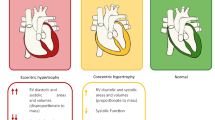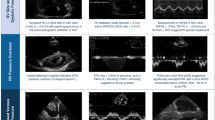Abstract
Acute high-output heart failure (HOHF) with pulmonary hypertension and liver injury caused by amlodipine poisoning is very rare. We report a 52-year-old woman who suffered from severe shock after an overdose of amlodipine. Hemodynamic monitoring showed that while her left ventricular systolic function and cardiac output were elevated, her systemic vascular resistance decreased significantly. At the same time, the size of her right heart, her central venous pressure, and the oxygen saturation of her central venous circulation all increased abnormally. The patient’s circulatory function and right ventricular dysfunction gradually improved after large doses of vasopressors and detoxification measures. However, her bilirubin and transaminase levels increased significantly on hospital day 6, with a CT scan showing patchy, low-density areas in her liver along with ascites. After liver protective treatment and plasma exchange, the patient’s liver function gradually recovered. A CT scan 4 months later showed all her liver abnormalities, including ascites, had resolved. The common etiologies of HOHF were excluded in this case, and significantly reduced systemic vascular resistance caused by amlodipine overdose was thought to be the primary pathophysiological basis of HOHF. The significant increase in venous return and pulmonary blood flow is considered to be the main mechanism of right ventricular dysfunction and pulmonary hypertension. Hypoxic hepatitis caused by a combination of hepatic congestion and distributive shock may be the most important factors causing liver injury in this patient. Whether amlodipine has other mechanisms leading to HOHF and pulmonary hypertension needs to be further studied. Considering the significant increase of right heart preload, aggressive fluid resuscitation should be done very cautiously in patients with HOHF and shock secondary to amlodipine overdose.





Similar content being viewed by others
Data Availability
The raw data supporting the conclusions of this article will be made available by the corresponding authors upon reasonable request.
References
Koliastasis, L., Lampadakis, I., Milkas, A., Strempelas, P., Sourides, V., Kakava, K., Tsioufis, P., & Papaioannou, S. (2022). Refractory shock from amlodipine overdose overcomed with hyperinsulinemia. Cardiovascular Toxicology, 22(1), 63–66. https://doi.org/10.1007/s12012-021-09699-2
Wasse, H., & Singapuri, M. S. (2012). High-output heart failure: How to define it, when to treat it, and how to treat it. Seminars in Nephrology, 32(6), 551–557. https://doi.org/10.1016/j.semnephrol.2012.10.006
Reddy, Y. N. V., Melenovsky, V., Redfield, M. M., Nishimura, R. A., & Borlaug, B. A. (2016). High-output heart failure: A 15-year experience. Journal of the American College of Cardiology, 68(5), 473–482. https://doi.org/10.1016/j.jacc.2016.05.043
Uddin, M. M., Mir, T., Briasoulis, A., Akintoye, E., Adegbala, O., Shafi, I., Qureshi, W. T., & Afonso, L. C. (2023). Clinical outcomes and 30-day readmissions associated with high-output heart failure. Hellenic Journal of Cardiology: HJC = Hellenike Kardiologike Epitheorese, 69, 24–30. https://doi.org/10.1016/j.hjc.2022.10.004
St-Onge, M., Anseeuw, K., Cantrell, F. L., Gilchrist, I. C., Hantson, P., Bailey, B., Lavergne, V., Gosselin, S., Kerns, W., Laliberté, M., Lavonas, E. J., Juurlink, D. N., Muscedere, J., Yang, C.-C., Sinuff, T., Rieder, M., & Mégarbane, B. (2017). Experts consensus recommendations for the management of calcium channel blocker poisoning in adults. Critical Care Medicine, 45(3), e306–e315. https://doi.org/10.1097/CCM.0000000000002087
de Castro Brás, L. E., Baccanale, C. L., Eccleston, L., Sloan, T., St Antoine, J. C., Verzwyvelt, S.M.-L., Pittman, P., O’Rourke, D., & Meggs, W. J. (2021). Efficacy of methylene blue in a murine model of amlodipine overdose. The American Journal of Emergency Medicine, 45, 284–289. https://doi.org/10.1016/j.ajem.2020.08.077
Sutar, A., Murthy, A., & Chikkaswamy, S. B. (2020). Severe amlodipine toxicity: A case rescued with extracorporeal membrane oxygenation. Indian Journal of Critical Care Medicine, 24(5), 365–366. https://doi.org/10.5005/jp-journals-10071-23423
de Ávila, D. X., Villacorta, H., de Andrade Martins, W., & Mesquita, E. T. (2022). High-output cardiac failure: A forgotten phenotype in clinical practice. Current Cardiology Reviews, 18(1), e050821195319. https://doi.org/10.2174/1573403X17666210805142010
Mehta, P. A., & Dubrey, S. W. (2009). High output heart failure. QJM: Monthly Journal of the Association of Physicians, 102(4), 235–241. https://doi.org/10.1093/qjmed/hcn147
Walløe, L. (2016). Arterio-venous anastomoses in the human skin and their role in temperature control. Temperature, 3(1), 92–103. https://doi.org/10.1080/23328940.2015.1088502
Okura, H., & Takatsu, Y. (1994). High-output heart failure as a cause of pulmonary hypertension. Internal Medicine (Tokyo, Japan), 33(6), 363–365. https://doi.org/10.2169/internalmedicine.33.363
Mathavan, A., Mathavan, A., Reddy, R., Jones, K., Eagan, C., Alnuaimat, H., & Ataya, A. (2023). Pulmonary hypertension in hereditary hemorrhagic telangiectasia: A clinical review. Pulmonary Circulation, 13(4), e12301. https://doi.org/10.1002/pul2.12301
Lozano, H. F., & Sharma, C. N. (2004). Reversible pulmonary hypertension, tricuspid regurgitation and right-sided heart failure associated with hyperthyroidism: Case report and review of the literature. Cardiology in Review, 12(6), 299–305. https://doi.org/10.1097/01.crd.0000137259.83169.e3
Kahn, J. A., Haker, K. M., Petrovic, L. M., Arnaout, W. S., Koobatian, G., & Fong, T. L. (2000). Radiographic findings of ischemic hepatitis in a cirrhotic patient. Journal of Computer Assisted Tomography, 24(6), 887–889. https://doi.org/10.1097/00004728-200011000-00012
Alvarez, A. M., & Mukherjee, D. (2011). Liver abnormalities in cardiac diseases and heart failure. The International Journal of Angiology: Official Publication of the International College of Angiology, Inc, 20(3), 135–142. https://doi.org/10.1055/s-0031-1284434
Waseem, N., & Chen, P.-H. (2016). Hypoxic hepatitis: A review and clinical update. Journal of Clinical and Translational Hepatology, 4(3), 263–268. https://doi.org/10.14218/JCTH.2016.00022
Deng, W., & Farricielli, L. (2013). Hypoxic hepatitis and acute liver failure in a patient with newly onset atrial fibrillation and diltiazem infusion. BMJ Case Reports. https://doi.org/10.1136/bcr-2013-200573
Funding
This work was supported by the Rui E Special Fund for Emergency Medicine Research (Grant Number 22222012002).
Author information
Authors and Affiliations
Contributions
Conceptualization: Chenlong Wang, Qingcheng Zhu, Dingyu Tan, and Joseph Walline; Data curation: Chenlong Wang, Qingcheng Zhu, and Yachao Wang; Investigation: Chenlong Wang, Qingcheng Zhu, Joseph Walline, and Yachao Wang; Writing—original draft: Chenlong Wang, Qingcheng Zhu, Dingyu Tan, and Joseph Walline; Supervision: Dingyu Tan.
Corresponding author
Ethics declarations
Competing Interests
The authors have no competing interests to declare that are relevant to the content of this article.
Patient Consent
Obtained.
Additional information
Handling Editor: Marcel.
Publisher's Note
Springer Nature remains neutral with regard to jurisdictional claims in published maps and institutional affiliations.
Rights and permissions
Springer Nature or its licensor (e.g. a society or other partner) holds exclusive rights to this article under a publishing agreement with the author(s) or other rightsholder(s); author self-archiving of the accepted manuscript version of this article is solely governed by the terms of such publishing agreement and applicable law.
About this article
Cite this article
Wang, C., Zhu, Q., Tan, D. et al. Acute High-Output Heart Failure with Pulmonary Hypertension and Severe Liver Injury Caused by Amlodipine Poisoning: A Case Report. Cardiovasc Toxicol 24, 513–518 (2024). https://doi.org/10.1007/s12012-024-09849-2
Received:
Accepted:
Published:
Issue Date:
DOI: https://doi.org/10.1007/s12012-024-09849-2




